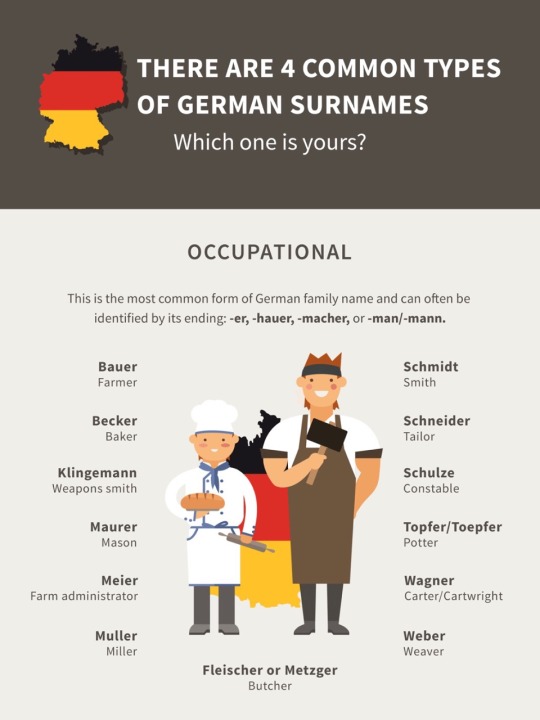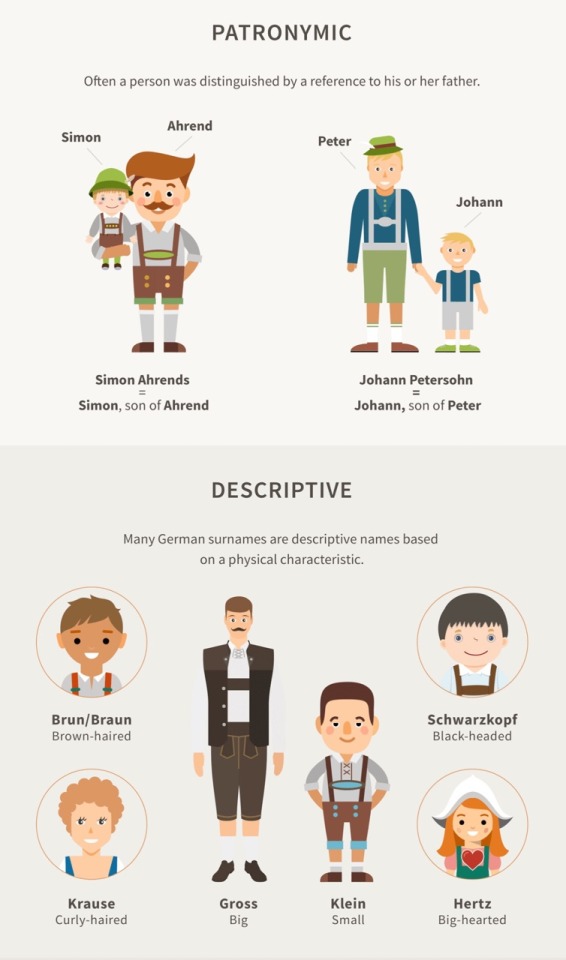Come join me on my never-ending quest to learn every language ever!
Don't wanna be here? Send us removal request.
Photo

Disclaimer: I’m aware of the fact that these are not the only Romance languages in existence. Despite that, I thought it’d be much more helpful to focus uniquely on some of the most studied ones, namely Italian, Spanish, French, Portuguese and, to a lesser degree, Romanian.
Italian, Spanish and Portuguese have a more phonemic orthography than French. In French, numerous letters are silent and multiple words are pronounced identically despite having a different spelling
to my knowledge, French is the only (official) Romance language where personal pronouns cannot be omitted
Italian words ending in -zione correspond to Spanish -ción, French -tion Portuguese -ção
both Italian no and non translate to Spanish no, Portuguese não and French non and ne .. pas
the sound [t͡ʃ] is represented by the digraphs ci- and ce- in Italian and ch- in Spanish, e.g.
It. Cina Sp. China
in Italian the combination qu- is pronounced /kw/, whereas it’s pronounced /k/ in Spanish and French, and /kw/ and /k/ in Portuguese depending on the following vowel. Consider this:
It. quando [kw-] Fr. quand [kɑ̃] Es. cuando [kw-]
It. chi [k-] Fr. qui [k-] Es. quien [k-]
Port. quando [kw-] Port. quem [k-]
Italian and Romanian do not form their plurals by adding -s or -es at the end of a word like in the rest of the Romance languages, e.g.
It. buono, buoni Rom. bun, buni Es. bueno, buenos Fr. bon, bons Port. bom, bons
Italian is the only (official) Romance Language to have derived two distinct prepositions from the Latin preposition de, e.g.
Di: from Lat. de “of”
It. sono di Napoli Es. soy de Nápoles Fr. je suis de Naples Port. Eu sou de Nápoles
Da: from Lat. de ab > *d'a(b) > da “from”
It. vengo da Napoli Es. vengo de Nápoles Fr. je viens de Naples Port. eu venho de Nápoles
Italian, like French, has direct and indirect as well as stressed and unstressed personal pronouns
in Italian and Portuguese, unlike in Spanish and French, possessive adjectives are always* preceded by an article, e.g.
It. il mio libro (cf. Cat. el meu llibre) Port. o meu livro** Es. mi libro Fr. mon livre
* possessive adjectives and pronouns are not preceded by an article when the following noun refer to a family member, e.g. mia madre (not la mia madre).
** posessive adjectives proceeded by articles
in Italian the word perché means both why and because, whereas they change based on their function in Spanish, Portuguese and French
Italian per and French pour translate to both Spanish and Portuguese por and para
in Italian, Spanish and Portuguese, unlike in French, object personal pronouns are usually appended to infinitives and gerunds, e.g.
It. posso farlo (lo posso fare) Es. puedo hacerlo (lo puedo hacer) Port. posso faze-lo Fr. je peux le faire
in Italian, Spanish, Portuguese and French, the subjunctive mood works similarly but not identically
there are more cognates between Italian and French, and Italian and Spanish than there are between Spanish and French, e.g.
It. casa Fr. maison Es. casa
It. testa / capo Fr. tête Es. cabeza
It. mangiare Fr. manger Es. comer
in Italian, graphic accents are only limited to oxytones, that is to say words having the stress on the last syllable, e.g. papà, città, caffè, etc
Italian is the only (official) Romance language that phonetically distinguishes single and double consonants, e.g. caro/carro, copia/coppia, papa/pappa, etc. are all pronounced differently (with the exception of the double -rr- in Spanish and Portuguese)
in Italian and French two vowels next to each other undergo elision and an apostrophe is used, but not in Spanish and Portuguese*. This usually happens with the Italian definite articles lo/la/le and French le/la, e.g.
It. la + energia = l'energia Fr. la + énergie = l'énergie Es. la + energía = la energía
* Portuguese does use this type of contraction but it’s used almost exclusively in poetry, e.g. de + agua = d’agua.
Spanish and Portuguese are notable amongst Romance languages for not having specific pronouns referring to place and quantity
It. ci vado Fr. j’y vais Sp. voy Port. vou
It. bevo dell’acqua Fr. je bois de l’eau Es. bebo agua Port. bebo água
It. ne ho quattro Fr. j’en ai quatre Sp. tengo cuatro Port. tenho quatro
Italian and French use both essere/être and avere/avoir to form compound verbs, but not Modern Spanish and Portuguese, which only use haber/ter (or haver)
It. ero venuto Fr. je suis venu Es. he venido Port. tenho vindo
unlike French, Spanish and Portuguese, during its slow evolution Italian dropped the etymological initial h- (silent in all Romance language) in words which originally started with said mute consonant, e.g. Lat. honore(m)
Old It. honore > It. onore Fr. honneur Es. honor* Port. honra
* it should be noted that not all Spanish words starting with h- etymologically carried it, e.g. Lat. ovu[m] > Sp. huevo
2K notes
·
View notes
Text
Echar
This word has so many meanings but I tried to learn at least some of them. I found it difficult to make this list so there might be some mistakes in it. Feel free to correct my mistakes. :)
echarse
to lie down Se echó en el sofá. - He/She lay down on the sofa.
echarse a hacer algo - to start doing sth
Se echó a llorar. - He/She burst into tears. Me eché a correr - I started to run. Me eché a reír. - I started laughing.
echarse encima - to be on its way
Ya se echa encima el verano. - Summer is just around the corner. Se echan encima las vacaciones de verano. - Summer break is just around the corner.
echarse a la calle - to take to the streets
Miles de personas se echaron a la calle. - Thousands took to the streets.
similar expressions: manifestarse
echarse atrás - to back out, to withdraw
Ya no puedo echarme atrás. - I can’t back out anymore. Se echaron atrás en el último momento. - They backed out at the last moment.
echar(se) un trago - to have a drink
echar
to throw Échalo a la basura. - Throw it in the trash. Siempre echo los papeles a la papelera. - I always throw paper in the wastepaper basket.
to throw away Hay que echar la basura. - The trash has to be thrown away.
to put Echa mantequilla en/a la sartén - Put butter in the pan. Échale un poco de canela al yogur - Put some put cinnamon in the yogurt.
to pour Echó un poco de agua en un vaso. - He/She poured some water into a glass. Échame un poco de vino, por favor. - Pour me some wine please.
to emit La chimenea echaba humo. - Smoke came out of the chimney.
to broadcast [TV] Anoche echaron un documental muy interesante. - A very interesting documentary was broadcasted yesterday evening.
to kick out Me echó de su casa. - He/she kicked me out of his/her house.
to fire / to sack Les echaron del trabajo. - They got fired.
to expell (from school) Me echaron de la escuela porque era muy mal estudiante. - I was expelled from school because I was a very bad student.
to tilt Cuando una nariz sangra no hay que echar la cabeza hacia atrás. - If someone has a nosebleed they mustn’t tilt their head back.
to reckon ¿Cuántos años me echas? - How old do you think I am?
to play ¿Echamos una partida de ajedrez? - Let’s play a round of chess.
echar de menos - to miss
Te echo de menos - I miss you Echo de menos a mi novio - I miss my boyfriend Echo de menos mi ciudad - I miss my city Te echaré de menos - I will miss you
similar words: extrañar
echar a perder - to ruin, to mess up
echar(le) gasolina al coche - to fill up the car with petrol
echar de comer - to feed
echar una bronca / echar la bronca - to tell someone off
Mis padres me echaron una/la bronca - I got a telling off from my parents
similar expression: regañar reprender
echar a la calle - to kick out
Haz lo que te diga o te echa a la calle. - Do what he/she tells you or he/she will kick you out.
echar balones fuera - to avoid an issue
Siempre echas balones fuera cuándo te pregunto. - You always avoid talking about it when I ask you.
similar expressions: lanzar balones fuera tirar balones fuera
echar chispas - to give off sparks, to be very angry (metaphorically)
El fuego echaba chispas. - The fire gave off sparks. Estoy tan enojada que echo chispas. - I’m so angry, I’m furious.
echar mano - to make use of something, to dip into
Tuvo que echar mano de sus ahorros. - She/He had to dip into her/his savings. Tuvimos que echar mano del mapa. - We had to make use of the map.
similar expressions: usar aprovechar
echar una mano - to lend a hand
¿Puedes echarme una mano por favor? - Can you lend me a hand, please? ¿Me echas una mano con esto? - Can you lend me a hand with this?
similar expressions: ayudar
echar un vistazo - to take a look at
Echó un vistazo a sus notas. - She/He took a look at her/his notes. Echa un vistazo a esta imagen. - Take a look at this picture.
echar un ojo - to have a look
echar a suertes - to flip a coin to see, to draw straw, draw lots (figuratively)
Lo echamos a suertes porque nadie quería lavar los platos. - We drew straws because nobody wanted to do the dishes.
echar en cara - to throw something in someone’s face, to hold against
Aún me lo echa en cara - He/She is still throwing it in my face.
similar expressions: culpar acusar
echar abajo - bring down, tear down
Los bomberos echaron abajo la puerta. - The firefighters broke down the door.
similar expressions: tumbar demoler
echar la culpa - to blame someone
Le echaron la culpa a ella. - They blamed her. Me echaron la culpa a mí. - They blamed me.
similar expression: culpar
echar raíces - to take root, to settle down
Estuve pensando en echar raíces y comenzar una familia. - I’ve been thinking about settling down and starting a family.
echar leña al fuego - to add fuel to the fire
echar una carta - to post a letter
Echa la carta al buzón. - Put the letter in the mailbox. ¿Dónde puedo echar esta postal? - Where can I post this postcard?
echar una cabezada - to take a nap
Necesito echar una cabezada. - I need to take a nap.
similar expressions: dar una cabezada
echar pestes de alguien - to speak bad of sb.
echar tierra - to hush something up
echar por tierra - to destroy
conjugation of echar:
Seguir leyendo
607 notes
·
View notes
Text
Afrikaans Masterpost.
Goeie dag almal!

I would like to officially introduce myself. My name is Chiquita. I’m from South Africa and my native language is Afrikaans. I’ve been asked by quite a few people for Afrikaans resources, but, unfortunately, they’re very scarce. I have decided to compile some of my own and share it with you guys! Geniet dit!
History and background:
(Unfortunately, I cannot verify ALL the information, but I will try my best to make sure it’s accurate.)
The languages of South Africa | Brand South Africa (along with information about South Africa’s 10 other official languages!)
Afrikaans | About World Languages
Afrikaans | Omniglot (Arabic section requires verification.)
Afrikaner | SAHO
Afrikaans language | Wikipedia
Afrikaans language | SA-Venues
Online lessons:
Afrikaans lessons | polymath.org
Afrikaans | Openlanguages
Learn Afrikaans | Hein’s Universe
Afrikaans lessons | Easy Afrikaans
Learn Afrikaans | Learn 101
How to Learn to Speak Afrikaans | WikiHow
Afrikaans Language Course | ielanguages
All you need to know about Afrikaans | Rawlangs
Music:
Bands and groups (active):
(Link in name leads to home pages, where applicable.)
Fokofpolisiekar (profanity), (lit. “F*ck off police car”) - Alternative rock. - Background | YouTube | Facebook
Die Heuwels Fantasties (lit. “The Hills Fantastic”) - Alternative, Electronica, Indie, Pop. - Background | YouTube | Facebook
Van Coke Kartel (lit. “From Coke Cartel”) - Alternative rock. - Background | YouTube | Facebook
Straatligkinders (lit. “Street light children”) - Rock. - Background | YouTube | Facebook
Foto na Dans (lit. “Photo after Dance”) - Progressive rock. - Background | YouTube
Die Antwoord (profanity and considered vulgar), (lit. “The Answer”) - Hip hop, Rap, Rave. - Background | YouTube | Facebook
Eden - Pop - Background
Die Melktert Komissie (lit. “The Milktart Commission”) - Pop, Acoustic. - Background | YouTube | Facebook
Glaskas (lit. “Glass case”) - Pop, Rock. - Background | YouTube | Facebook
Artists and musicians:
(Link in name leads to home pages, where applicable.)
Elvis Blue - Pop, Adult contemporary. - Background | YouTube | Facebook
Kurt Darren - Afrikaans folk music. - Background | YouTube | Facebook
Steve Hofmeyr - Afrikaans folk/pop. - Background | YouTube | Facebook
Jack Parow (profanity) - Hip hop, Rap, Afrikaans rap. - Background | YouTube | Facebook
Nádine - Pop. - Background | YouTube | Facebook
Bobby van Jaarsveld - Pop. - Background | YouTube | Facebook
Bok van Blerk - Pop rock. - Background | YouTube | Facebook
Chris Chameleon - Folk, World, Rock, Acoustic. - Background | YouTube | Facebook
Hennie Jacobs - Acoustic. - Background | YouTube | Facebook
Juanita du Plessis - Afrikaans gospel. - Background | YouTube | Facebook
Snotkop (vulgar), (lit. “Booger head”) - Pop, Kwaito, Rap. - Background | YouTube | Facebook
Karlien van Jaarsveld - Pop. - YouTube | Facebook
Movies:
Dis ek, Anna (2015, lit. “It’s me, Anna”) - Drama. Movie based off of the novel written by Anchien Troskie. A girl endures abuse at the hands of her stepfather. A court case ensues.
Semi-soet (2012, lit. “Semi-sweet”) - Romantic comedy. A desperate young woman tries to save her company from someone taking over. A relationship can seal the deal, therefore, she hires a model to be her significant other.
As jy sing (2013, lit. “If you sing”) - Musical comedy. A music teacher supports his singing group. Circumstances force them to sing for what they believe in.
Poena is koning (vulgar and profanity), (2007, lit. “Poena is king”) - Comedy. Two teens boys go on a mission. They refuse to stay virgins until the finish highschool.
Bakgat! (2008, lit. “Cool!”) - Comedy. A popular girl is dumped by the highschool sport star. She goes on a mission to transform the school wimp into the next best thing.
Bakgat! 2 (2010, lit. “Cool! 2″ - Comedy. The characters from the first movie now attend university. Some dreams, like a rugby career, seem unreachable.
Bakgat! Tot die mag 3 (2013, lit. “Cool! To the power 3″) - Comedy. The main character aspires to win a rugby league and pay for his wedding with the prize money, meanwhile, he is putting his relationship in danger.
Wolwedans in die Skemer (2012, lit. “Wolf dance in the dusk”) - Thriller. Sonja arrives at a hotel where she’s supposed to take up her new job as a receptionist, but following a freak accident, she has no idea who she is.
Liefling (2010, lit. “Darling”) - Musical romance. A girl with a love for life falls in love during the December holidays, but fate, and other people, intervenes.
Pretville (2012, lit. “Fun-ville”) - Musical. A movie that in set in a typical 1950′s town, showing what life was like back then.
Faan se trein (2014, lit. “Faan’s train”) - Drama. A mentally challenged man has a dream of having his own traicn. We accompany him on his journey.
Pad na jou hart (2014, lit. “Road to your heart”) - Romantic comedy. A young man has 5 days to travel across the country to attend his father’s funeral. He catches a ride with a beautiful young lady.
Treurgrond (2015, lit. “Mourn ground”) - Drama. A movie that shows how farm attacks affect the whole community, not just the family.
Jou Romeo (2016, lit. “Your Romeo”) - Teen comedy. A school has to cancel a play due to budget cuts. Kids stand up, and try to keep the play going.
Sy klink soos lente (2016, lit. “She sounds like spring”) - Comedy. A guy tries to win a girl’s heart by lying to her, saying he is part of a band. He is a mere motor mechanic. Now he needs a plan, or he’s going to lose her.
Vir die voëls (2016, lit. “For the birds”) - Comedy. A wild girl on the verge of marrying isn’t sure if the married life is for her.
Vir Altyd (2016, lit. “Forever”) - Romantic comedy. A girl is left in front of the altar by her significant other. She makes some “bad decisions” and ends up going on a journey where she realises who she really loves.
Videos:
Learn Afrikaans 101 | YouTube
Learn Afrikaans - Steohenstone | YouTube
Learn Afrikaans | YouTube
Greetings - Learn Afrikaans | YouTube (I listed this one specifically, because I know people other than natives struggle with the g-sound!)
Extras:
Afrikaans slang | Wikipedia (checked this out myself, not too bad!)
Afrkaans memes and jokes (@antiegriet) | Instagram
Afrikaans quotes (@cool_kwadraat) | Instagram
Maroela Media - Social platform filled with articles and news.
Afrikaans.com - A page with a little bit of everything.
Pasella - A travel series focused on food, celebrities, and all the fun little things in South Africa.
Afrikaans is Groot (lit. “Afrikaans is Big”) - A annual event hosting some of the best Afrikaans artists in the country. | Facebook
I really, really hope this helps! Please report any problems, any feedback would also be appreciated! Thank you so much for reading, spread the word!
*Disclaimer: I do not own any of the content mentioned on this page, but am merely sharing it for educational purposes, Should any individual have a problem, please contact me without hesitation.
551 notes
·
View notes
Text
Hebrew in ~300 words עִבְרִית בְּכְ־300 מִּלִּים
Attention! I made some mistakes on the original post due to how similar the vowel points look on the HTML editor, hopefully enough people will see this on my blog and see that I’ve fixed them. Sorry :(
As a part of this post about beginning to learn a language, I’d decided to translate 300 basic words and phrases into Hebrew.
Note: all words will be written in defective spelling (ktiv haser) and with vowel points for ease of pronunciation
A hyphen (מָקָף) indicates the preposition / conjunction is immediately attached to the next word, and a dot underneath the hyphen is a dagesh, a bowel point indicating change in pronunciation of ב, כ, פ from the expected mid-word soft pronunciations (v, kh, f) to the hard ones (b, k ,p, respectively).
First Verbs
Verbs are given in their simplest form: 3rd person, male, past tense. modal verbs are exceptional in Hebrew, so they are given in their most common form.
be - no equivalent. The subject and the complement are simply put one after the other in the case of an adj. (which is conjugated according to number and gender), and connected with a 3rd person pronoun conjugated accordingly in case of a noun complement (הוּא/הִיא; הֵם/הֵן)
there is - יֵשׁ, past הָיה
have - יֵשׁ לְ־ (there is to subj.) past הָיָה לְ־
do - עָשָׂה
go - הָלַךְ
want - רָצָה
can - m יָכוֹל / f יְכוֹלָה
need - m צָרִיךְ / f צְרִיכָה
think - חָשַׁב
know - יָדַע
say - אָמַר, הֵגִיד
like - אָהַב (same as love)
speak - דִּבֶּר
learn - לָמַד
understand - הֵבִין
Conjunctions
that (as in “I think that…” or “the woman that…”) - ּשֶׁ־ (i think that…, the woman that… all tenses), הַ־ּ (the woman that… alternative to present tense)
and - וְ־
or - אוֹ
but - אֲבָל
because - in decreasing order of frequency - כִּי, בִּגְלַל שֶׁ־ּ, מִשֹּוּם שֶׁ־ּ, (מִ)כֵּיוָן שֶׁ־ּ, etc.
though - in decreasing order of frequency - לַמְרוׁת שֶׁ־ּ, עַל אַף שֶׁ־ּ, אַף עַל פִּי שֶׁ־ּ, etc.
so (meaning “therefore”; e.g. “I wanted it, so I bought it”) - אַז, לָכֵן
if - אִם
Prepositions
When used with pronouns, Hebrew prepositions are always conjugated with a specific ending for each pronoun.
of - של
to - אֵל (direction), לְ־ (all other uses tbh)
from - מִ־ּ
in - ְבְּתוֹך (inside), בְּ־ (in general)
at (a place) - בְּ־
at (a time) - בְּ־
with - עִם (with a noun), אֵת (with a pronoun, conjugated as ָאִתִּי, אִתְּך, etc.)
about - עַל
like (meaning “similar to”) - כְּמוֹ, כְּ־
for (warning, this one has several meanings that you need to take care of) - בִּשְׁבִיל (intended to)
before (also as a conjunction) - לִפְנֵי/לִפְנֵי שֶׁ־ּ
after (also as a conjunction) - אַחֲרֵי/אַחֲרֵי שֶׁ־ּ
during - תּוֹךְ כְּדֵי
bonus: direct obj. marker - אֵת (used with a defininte noun, conjugated ָאוֹתִי, אוֹתְך but אֶתְכֶם, אֵֶתְכֶן
Question Words
who - מִי
what - מָה
where - אֵיפֹה
when - מָתַי
why - לָמָּה
how - אֵיךְ
how much - כַּמָּה
which - אֵיזֶה
Adverbs
a lot - הַרְבֵּה
a little - קְצַת, מְעַט
well - טוֹב
badly - רַע
only - רָק
also - גַּם
very - מְאֹד
too (as in “too tall”) - מִדַּי (lit. (more) than enough)
too much - יוֹתֵר מִדַּי
so (as in “so tall”) - m כָּזֶה, f כָּזֹאת; or כָּל כַּךְ
so much - כָּל כַּךְ הַרְבֵּה
more (know how to say “more … than …”) - יוֹתֵר
less (know how to say “less … than …”) - פַּחוֹת
than - מ��־ּ
as … as … (e.g. “as tall as”) - … כְּמוֹ …
comparative (more, -er) - יוֹתַר
superlative (most, -est) - הֲכִי
now - עַכְשָׁו, כָּעֵת
then - אַז
here - פֹּה, כָּאן
there - שָׁם
maybe - אוּלַי
always - תָּמִיד
usually - בְּדֶרֶךְ כְּלַל
often - הַרְבֵּה, לְעִתִּים קְרוֹבוֹת
sometimes - לִפְעָמִים, מְדֵּי פַּעַם
never - אַף פַּעַם (used with neg. verb / copula)
today - הַיּוֹם
yesterday - אֱתְמוֹל
tomorrow - מַחַר
soon - תֵּכֶף
almostֹ - כִּמְעַט
already - כְּבָר
still - עָדַיִן
even - אַפִלּוּ, אַף, גַּם
enough - מַסְפִּיק
Adjectives
the, a (technically articles) - הַ־ּ, no indef. article
this - m הַזֶּה, f הַזֹּאת
that - m הַזֶּה, f הַזֹּאת or m הָהוּא, f הָהִיא
good - טוֹב
bad - רַע
all - כָּל הַ־ּ
some - כַּמָּה
no - שׁוּם
any - שׁוּם
many - הַרְבֵּה
few - קְצַת, מְעַט
most - רֹב הַ־ּ
other - אַחֵר
same - m אוֹתוֹ הַ־ּ , f אוֹתָה הַ־ּ
different - שׁו��נֶה
enough - מַסְפִּיק
one - m אֶחָד, f אַחַת
two - m שְׁנַיִם, f שְׁתַּיִם
a few - כַּמָּה
first - רִאשׁוֹן
next - הַבַּא (in time), לְיַד, עַל יַד (both in place)
last (meaning “past”, e.g. “last Friday”) - שֶׁעָבַר, הַקּוֹדֵם
last (meaning “final”) - הָאַחֲרוֹן
easy - קָל
hard - קָשֶׁה
early - מֻקְדַם
late - מְאֻחָר
important - חָשׁוּב
interesting - מְעַנְיֵן
fun - כֵּיף, כֵּיפִי
boring - מְשַׁעֲמֵם
beautiful - יָפֵה
big - גָּדֹל
small - קָטַן
happy - שָׂמֵחַ
sad - עָצוּב
busy - עָסוּק
excited - מִתְרַגֵּשׁ, נִרְגָּשׁ
tired - עָיֵף
ready - מוּכָן
favorite - הָאָהוּב עַל …
new - חָדָשׁ
right (meaning “correct”) - (e.g. a right answer) נָכוֹן; (e.g. to have the right answer) צוֹדֵק
wrong - לֹא נָכוֹן, שָׁגוּי; טוֹעֶה
true - נָכוֹן
Pronouns
Conjugated as:
subject
‘singular’ prepositional ending - בְּ־, כְּ־, לְ־, מִ־ּ, עם, את, של, בשביל, etc.
‘plural’ prepositional ending - עַל יְדֵי, אַחֲרֵי, מְאֲחוֹרֵי, עַל, אֵל, etc.
ס stands for the preceding prepostion
I
אֲנִי
סִי
סַי
you m
אַתָּה
סְךָ
סֶיךָ
you f
אַתְּ
סָךְ
סַיִךְ
he
הוּא
סוֹ
סָיו
she
הִיא
סָהּ
סֶיהָ
* it
m זֶה f זֹאת
we
אֲנַחְנוּ
סָנוּ
סֶינוּ
you (pl.) m
אֲתֶּם
סְכֵם
סֶיכֵם
** you (pl.) f
אַתֶּן
סְכֵן
סֶיכֵן
they (pl.) m
הֵם
סָם
סֶיהֵם
** they (pl.) f
הֵן
סָן
סֶיהן
* There is no neuter gender (it), so inanimate nouns are referred to by the corresponding male or female third person pronouns and conjugations
** Many speakers these days make no distinction between male and female second and third person pronouns (you, they), so these conjugations are gradually becoming obsolete.
Nouns
Hebrew nouns come in two genders, masculine and feminine, however unlike many other languages, the definite article is identical for all genders and inflections, therefore it is not included.
everything - הַכֹּל
something - מָשֶׁהוּ
nothing - כְּלוּם
everyone - כֻּלָּם
someone - מִישֶׁהוּ
no one - אַף אֶחָד / אַחַת (used in negation)
(name of the language you’re studying) - עִבְרִית
English - אַנְגְּלִית
thing - דָּבָר
person - בֵּן אָדָם (lit. son of Adam)
place - מָקוֹם
time (as in “a long time”) - זְמַן
time (as in “I did it 3 times”) - פַּעַם
friend - חָבֵר
woman - אִשָּׁה
man - אִישׁ
money - כֶּסֶף
country - מְדִינָה
(name of your home country) - ישְׂרָאֵל
city - עִיר
language - שָׂפָה, לָשׁוֹן
word - מִלָּה
food - אֹכֶל
house - בַּיִת
store - חָנוּת
office - מִשְׂרַד
company - חֵבְרָה
manager - מְנָהֵל
coworker - קוֹלֶגָה
job - עֲבֹדָה
work (as in “I have a lot of work to do”) - עֲבֹדָה
problem - בַּעֲיָה
question - שֶׁאֱלָה
idea - רַעֲיוֹן
life - חַיִּים
world - עוֹלָם
day - יוֹם
year - שָׁנָה
week - שָׁבוּעַ
month - חֹדֶשׁ
hour - שָׁעָה
mother, father, parent - אֵם, אַב, הוֹרֶה/הוֹרָה
daughter, son, child - בַּת, בֵּן, יֶלֶד/יָלְדָה
wife, husband - אִשָּׁה, בַּעַל
girlfriend, boyfriend - חָבֵרָה, חָבֵר
More Verbs
work (as in a person working) - עָבַד
work (meaning “to function”, e.g. “the TV works”) - עָבַד
see - רָאָה
use - הִשְֹתַּמּשׁ
should - הָיָה צָרִיךְ
believe - הֶאֱמִין
practice - הִתְאַמֵּן (practice a skill), פָּעַל (practice one’s beliefs)
seem - נִרְאָה, נִדְמָה
come - בָּא
leave - עָזַב
return - חָזַר
give - נָתַן
take - לָקַח
bring - הֵבִיא
look for - חִפֵּשׂ
find - מָצַא
get (meaning “obtain”) - הֵשׂיג
receive - קִבֵּל
buy - קָנָה
try - נִסָּה
start - הִתְחִיל
stop (doing something) - הִפְסִיק
finish - סִיֵּם, גָּמַר
continue - הִמְשִׁיךְ
wake up - הִתְעוֹרֵר
get up - קָם
eat - אָכַל
happen - קָרָה
feel - הִרְגִּישׁ
create (aka “make”) - יָצַר, עָשָׂה
cause (aka “make”) - גָּרַם לְ־
meet (meeting someone for the first time) - פָּגַשׁ, נִפְגַּשׁ
meet (meaning “to bump into”) - פָּגַשׁ
meet (an arranged meeting) - נִפְגַּשׁ
ask (a question) - שָׁאַל
ask for (aka “request”) - בִּקֵּשׁ
wonder - תָּהָה
reply - הֵגִיב
mean - אָמַר
read - קָרַא
write - כָּתַב
listen - הִקְשִׁיב
hear - שָׁמַע
remember - זָכַר
forget - שָׁכַח
choose - בָּחַר
decide - הִחְלִיט / הֶחֱלִיט
be born - נוֹלַד
die - מֵת
kill - הָרַג
live - חַי
stay - נִשְׁאַר
change - שִׁנָּה (for someone to change something), הִשְׁתָּנָּה (for something to change itself)
help - עָזַר
send - שָׁלַח
study - לָמַד
improve - שִׁפֵּר (for someone to improve something), הִשְׁתַּפֵּר (for somthing to improve itself)
hope - קִוָּה
care - הָיָה לְ־ אִכְפַּת (word or word, there-was to-subj. care)
Phrases
hello - שָׁלוֹם
goodbye - שָׁלוֹם / לְהִתְרָאוֹת
thank you - תּוֹדָה
you’re welcome - אֵין בְּעַד מָה, עַל לֹא דָּבָר
excuse me (to get someone’s attention) - סְלִיחָה
sorry - סְלִיחָה
it’s fine (response to an apology) - זֶה בְּסֶדֶר
please - בְּבַקָּשָׁה
yes - כֵּן
no - לֹא
okay - אוֹקֵיִי, בְּסֶדֶר, סַּבָּבָּה (slang)
My name is _____ - קוֹרְאִים לִי _____
What’s your name? אֵיךְ קוֹרְאִים לְךָ/לָךְ?
Nice to meet you. - נָעִים לְהַכִּיר
How are you? - מָה שְׁלוֹמְךָ/שְׂלוֹמֶךְ?, מָה קוֹרֶה?
I’m doing well, how about you? אֲנִי בְּסֶדַר, מָה אִתְּךָ/אִתָּך?
Sorry? / What? (if you didn’t hear something) - סְלִיחָה / שׁוּב?
How do you say ______? - אֵיךְ אוֹמְרִים _____?
What does ______ mean? - מָה _____ אוֹמֵר?
I don’t understand. - לֹא הֵבָנְתִּי.
Could you repeat that? אַתָּה/אַתְּ יָכוֹל/יְכוֹלָה לַחְזֹר עַל זֶה?.
Could you speak more slowly, please? אַתָּה/אַתְּ יָכוֹל/יְכוֹלָה לְדַבֶּר יוֹתֵר לְאַט?
Well (as in “well, I think…”) - not really one word as in English. טוֹב can be said, but oftentimes simple filler sounds are used (אֶמממ, אֶההה, etc.)
Really? - בֶּאֱמֶת?
I guess that … - -אֲנִי מֵנִיחַ/מְנִיחָה שֶׁ.
* It’s hot. (talking about the weather) - חַם.
* It’s cold. (talking about the weather) - קַר.
* As these are one word sentences, they’re rarely said as is, usually coupled with a preposition indicating who or what is cold. (E.g. I’m cold - קַר לִי; It’s cold outside - קַר בָּחוּץ
1K notes
·
View notes
Text
Не перевариваю
There are the two very common idioms in Russian to say that you detest or hate something:
не переваривать (lit. not be able to digest smth)
терпеть не мочь (lit. not be able to tolerate smth)
Both belong to the colloquial language, but are not rude or offensive.
Я терпеть не могу, когда мне врут. I hate when people lie to me. Я не перевариваю розовые стены. I hate pink walls.
I have a question to the native English speakers: would it be OK to say “I don’t have the stomach for pink walls”?
Thank you!
38 notes
·
View notes
Text
Tips for Chinese Learners
I’m not an expert on Chinese whatsoever, but these are just some things I feel will make Chinese vocabulary and Chinese characters easier to remember.
1) You always hear people say how there are SO many characters in Chinese, how it’s impossible to remember them all, and how there are millions of combinations. That’s partially true, because there are a TON of characters that exist in the Chinese language. But, Chinese words come in combinations of 2-3 characters all the time. What you need to recognize is that when Chinese readers read, we unconsciously split everything up into distinct units, just like how we read in English. So if you have a sentence like:
很多地区发出警告提醒人们不要外出。And you’re probably like ??? what is this omg
But if you learn to group the sentence into separate word units, you’ll be able to understand the sentence a lot better, instead of trying to figure out each character on its own. The word units would be:
很多 - many 地区 - areas/regions 发出 - to issue 警告 - a warning 提醒 - to warn/alert 人们 - the people 不要 - not/don’t 外出 - go outside
Luckily, all the word units in this sentence are 2 words each~ And if you group things like that, you don’t have to worry about seeing the same character in different contexts, and then panicking because you don’t know which definition applies to the current context. A lot of Chinese words are formed from grouped words, so this grouping activity will also increase your vocabulary size.
2) Some people think that all Chinese characters are completely random, and have no phonetic basis. However, ~90% of all Chinese characters are phonetically based, although these phonetics are based off of Chinese radicals, and not phonetics that we, as English speakers, are used to. You’ll need to know the basic radicals, and then with that as your foundation, you can essentially guess the pronunciations of words containing that radical.
ex: 里, 理, 裡, 浬, 厘, 哩, 狸, 俚, and 喱 are all pronounced “li”. The common radical is 里, which is itself pronounced “li”. See how nice and easy that was? Now ofc, there are tons of exceptions, and guessing the pronunciation will not always work, but this certainly makes Chinese a lot less intimidating when we realize that the majority of Chinese characters follow a similar system~
3) Learning by ear is also really important in Chinese!!! Listening comprehension is important in all languages, but I feel like learning vocabulary aurally will make learning Chinese words easier as well! It feels good when you’re reading something, you come across a word, look it up, and realize that you’ve already learned it aurally~ There are so many Mandarin audio resources/TV shows/radio shows/reality shows/singing competitions on the internet making it realllly easy to find something to learn stuff from!
4) Don’t be TOO reliant on Pinyin. Yes, it’s super useful and convenient, but I’ve seen people who only knew how to write in Pinyin, and not the actual Chinese characters themselves. Another way you can practice listening by ear is by looking up Chinese words in an online dictionary with audio, and to try to imitate the native speaker without having to rely solely on Pinyin to get the pronunciation right.
190 notes
·
View notes
Text
Idiomatic Expression - contra viento y marea
Literally, “against wind and tide”
Idiomatically, you would translate this as “come hell or high water”
There are quite a few other ways to say this.
The most common ones would be cueste lo que cueste "whatever the cost" [lit. “may it cost whatever it costs”], or a particularly literary one is llueva, truene y relampaguee which is “come rain, thunder, or lightning” [lit. “whether it rains, thunders, or lightnings”].
32 notes
·
View notes
Text
Low-formality conjugation (해체)
This is my last post in my conjugation series covering three of the most common forms you can expect to see, 하십시오체, 해��체, and now finally 해체, which is often referred to as 반말! There are other forms to be covered later, but if you at least know these three, you’ll be set for pretty much any social interaction in Korean. While the previous two posts were a bit heavy, this one will be a lot more short and sweet because… we more or less learned it all in the 해요체 post!
Once more, I will leave irregular verbs out of this post for the sake of simplification (irregulars are for another post!).
Function
해체 is a low-formality high-closeness conjugation that is used when you speak with close family members* and friends, and when you speak to people who are below you in the social hierarchy (below you in rank, age, etc.). In addition, this is used in more relaxed social settings, where you do not need to worry about strict decorum. As such, you run the risk of coming off rude if you use this with someone older than you, higher in rank than you, or someone that you are not very close with, like a stranger you’re meeting for the first time or a recent acquaintance. If you want to know a bit more about the workings of social formality and closeness in Korean conjugation, you can check out this post and skip down to the “Formality levels” section (and I highly recommend you do so, as it’s very important in Korean society and thus, in the Korean language!).
When using 해체, you can use the informal words for “I” and “you,” which are “나” and “너” respectively. However, one caveat to using “너” is that you should not use it toward someone who is older than you. In that case, you would refer to the person by their name or title.
*NOTE: Using 해체 with your siblings is very normal, and many people use it with their parents as well (though some do switch to speaking to their parents with 해요체 as they get older). There are also those that use 해체 with their grandparents, though this is fairly unusual.
Usage
The conjugation of 해체 is very similar to that of 해요체. In fact, you can often just remove the -요 from 해요체 to make 해체 sentences! There are a few exceptions to this, and a few special endings that you can use with 해체, and of course I’ll cover those a bit later in this post. Anyway, if you are not familiar with the formation of 해요체, please read that post first and then come back!
…
…
…okay, done reading up on 해요체? So, in the 해요체 post, we saw that regular conjugation involves adding -아요 to verb roots where the final vowel is 아 or 오 and -어요 to verb roots with a final vowel of anything that is not 아 or 오. Regular conjugation of 해체 is the same—just add -아 or -어 depending on the final vowel of the root:
먹다 - 다 -> 먹 + -어 = 먹어
남친은 채소를 안 먹어. (My boyfriend doesn’t eat vegetables.)
좁다 - 다 -> 좁 + -아 = 좁아
우리 집은 좀 좁아. (My house is a bit narrow. <–NOTE: Korean uses “우리” instead of “나의[내]/저의[제]” to mean “my” when talking about things like family members, homes, schools, etc.)
Let’s check the little exceptions that we saw in the 해요체 post and see how they turn out in 해체 (hint: pretty much the same!).
First, if the verb root ends with either 아 or 어, you don’t double up and add -아 or -어. The vowels simply overlap.
가다 - 다 -> 가 + -아 = 가 (NOT 가아)
난 학교에 가. (I go/am going to school.)
서다 - 다 -> 서 + -어 = 서 (NOT 서어)
거기 서. (Stand there.)
하다 is a bit of a special case. We saw last time that in 해요체, it becomes “해요” instead of the expected “하요”. Again, we do the same thing but just leave off the -요.
난 심심해. (I’m bored.)
코끼리는 강해. (Elephants are strong.)
수미는 매일 수영해. (Sumi swims every day.)
되다 is also special. Going by the regular rule, it would be 되어. However, it is far more natural to contract it to 돼. Let’s check it out:
되다 - 다 -> 되 + -어 = 돼
난 좀 걱정이 돼. (I’m a little worried.)
And yet another special case, 이다. When following a noun that ends with a consonant, it will be -이야. When following a noun that ends with a vowel, it will just be -야.
가방이야. (It’s a bag.)
학교야. (It’s a school.)
Other special cases occur with roots ending in the vowels 이, 우, and 오. In these cases, the final vowel merges with -어 (or -아 in the case of roots ending with 오) to make a compound vowel sound.
시다 - 다 -> 시 + -어요 = 셔
맛이 너무 셔. (The taste is too sour.)
춤을 추다 - 다 = 춤을 추 + -어요 = 춤을 춰
미나 씨는 춤을 춰. (Mina dances/Mina is dancing.)
오다 - 다 -> 오 + -아요 = 와
세빈 씨도 와. (Sebin is coming too.)
NOTE: I mentioned in the 해요체 post that the honorific infix -(으)시- is an exception to the above rule. In 해요체, the 시 becomes “세” instead of the expected “셔.” However, in 해체—Yes, you can use honorifics with 해체/반말! Read more about its usage here!—the 시 does become “셔”!
좋아하다 - 다 -> 좋아하 + 시 + -어 = 좋아하셔
우리 엄마는 꽃을 좋아하셔. (My mom likes flowers.)
앉다 - 다 -> 앉 + 시 + -어요 = 앉으셔
할머니는 거기 앉으셔. (Grandma sits/is sitting there.)
Special endings
We’re done with the conjugation rules! However, there are a few special endings we can use with 해체 that we didn’t have with 해요체.
There are three common ones I want to introduce here, interrogative -니, imperative -아/어라, and propositive -자. Please NOTE that -아/어라 and -자 technically fall under 해라체, another kind of conjugation, but they are commonly used with 해체.
When you are asking a question to someone younger than you, you can end your sentences with “-니?” instead of the normal 해체 conjugations:
어디 가니? (Where are you going?)
케이크를 좋아하니? (Do you like cake?)
넌 학생이니? (Are you a student?)
You can form commands by adding -아/어라 to the root, keeping in mind the rules laid out previously. Don’t use this one toward someone older than you, even if you do speak in 해체/반말 together! You can just use plain 해체 for commands also, of course.
빨리 해라! (Do it quickly!)
가라! (Go!)
앉아라!
When you want to suggest something, you can add -자 directly to the root instead of the normal 해체 conjugation. It’s not necessary to use it—you can just stick with plain 해체— but the option is there:
같이 먹자! (Let’s eat together!)
공부하자. (Let’s study.)
책을 사자. (Let’s buy books.)
More examples
Let’s check out some more examples using a variety of sentences types.
가다
Declarative: 오늘 우체국에 가. (Today I am going to the post office.)
Interrogative: 어디 가/가니? (Where are you going?)
Imperative: 시장에 빨리 가/가라. (Go to the market quickly.)
Propositive: 학교에 같이 가자. (Let’s go to school together.)
먹다
Declarative: 난 채소를 많이 먹어. (I eat a lot of vegetables.)
Interrogative: 고기를 먹어/먹니? (Do you eat meat?)
Imperative: 이거 먹어/먹어라. (Eat this.)
Propositive: 이거 먹자. (Let’s eat this.)
하다
Declarative: 그 남자는 축구를 해. (That man plays soccer/is playing soccer.)
Interrogative: 민지 씨는 공부해/하니? (Is Minji studying?)
Imperative: 그만 해/해라! (Stop doing that!)
Propositive: 우리 게임을 하자! (Let’s play games!)
되다
Declarative: 이 것을 만지면 안 돼. (It’s not okay if you touch this thing [More natural translation would be “Don’t touch this thing,” but in Korean, it’s a declarative sentence, not imperative].)
Interrogative: 시간이 돼? (Do you have time?)
Imperative: 돼라, 제발! (Please work!)
Propositive: 우리 좋은 학생이 되자! (Let’s become good students!)
꿈을 꾸다
Declarative: 에린 씨는 매일 밤 꿈을 꿔. (Erin dreams every night.)
Interrogative: 어떤 꿈을 꿔/꾸니? (What kinds of dreams do you have/dream?)
Imperative: 돼지 꿈을 꿔/꾸라! (Dream of pigs! [In Korean culture, a dream of pigs is said to indicate wealth.])
Propositive: 재미있는 꿈을 꾸자! (Let’s have fun dreams!)
With this, we’re done learning about the three conjugation types that you will most often use, 하십시오체, 해요체, and 해체! Make sure to practice a lot~
Happy studying~
335 notes
·
View notes
Photo

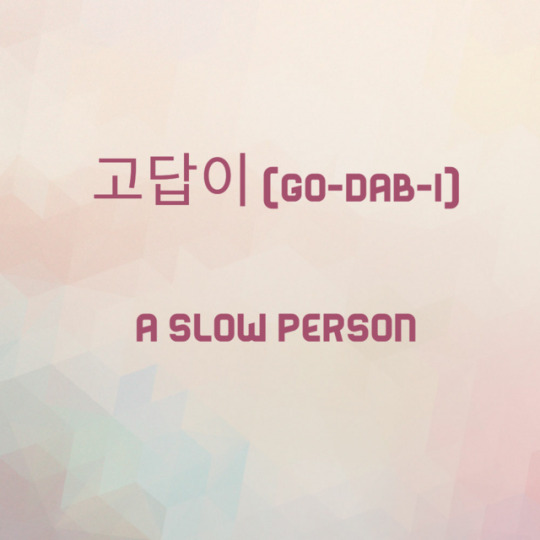

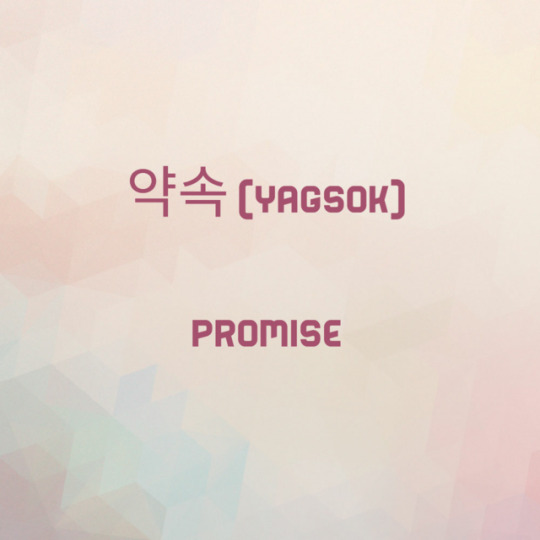

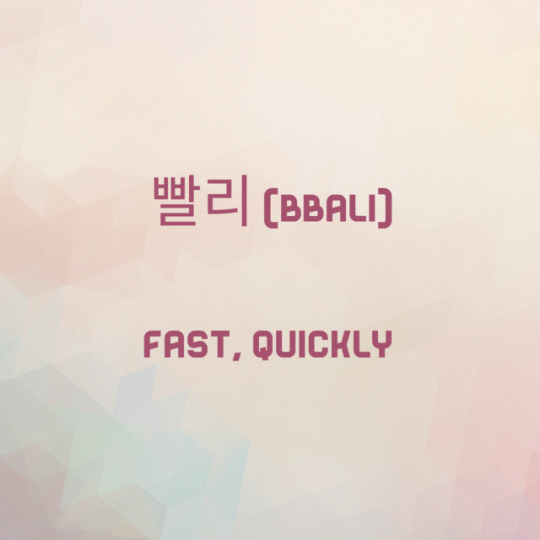


8 interesting korean words/expressions!
2K notes
·
View notes
Text
German Words & Phrases for Essays
Random
Es wird davon ausgegangen, dass / Man nimmt an, dass - it is assumed that
glücklicherweise, zum Glück - fortunately
leider, unglücklicherweise, bedauerlicherweise - unfortunately
falls - if
im Falle(,) dass - in case
in diesem Fall - in this case
wenn man bedenkt, dass - bearing in mind that
was … betrifft - as far as … is concerned
mit anderen Worten - in other words
das heißt - that is to say
sofern - provided that
angesichts [+Genitive] - in view of
insbesondere - notably
Time & Sequence
zuerst - first of all
erstens - firstly
zweitens - secondly
nachdem - after
daraufhin - subsequently, consequently
sobald - as soon as
solange - as long as
heutzutage - nowadays, these days
nun - now
bevor - before
später - later, afterwards
anschließend - subsequently, following this …
plötzlich / auf einmal - suddenly
endlich - eventually
früher oder später - sooner or later
Addition
sowie - as well as
Ein weiterer Aspekt ist - Another aspect is
Ich möchte noch hinzufügen, dass - I would like to add that …
hinzu kommt / hinzu kommen - furthermore, in addition
nebenbei - besides
nicht nur … sondern auch - not only … but also
ergänzend - in addition
außerdem / darüberhinaus - furthermore, moreover
ganz zu schweigen von - not to mention
abgesehen davon - having said that
Comparison
Dies lässt sich mit … vergleichen - This is comparable to …
ebenso wichtig - equally important
ähnlich - similarly
auf dieselbe Weise - in the same way
dagegen - by contrast
Opinion
Ich möchte erwähnen, dass - I would like to mention
Ich denke, dass - I think that
Ich glaube, dass - I believe that
mir scheint, dass - it seems to me that
meiner Meinung nach - in my opinion
meines Erachtens - in my opinion
Ich bin davon überzeugt, dass - I am convinced that
was mich betrifft / angeht - as far as I am concerned
Ich möchte auf … aufmerksam machen - I would like to draw attention to
Disagreeing
Einerseits … , andererseits - on the one hand … on the other hand
Ich bin teilweise anderer Meinung - I partly disagree
Es wäre falsch zu behaupten, dass - it would be wrong to claim …
während - while
aber - but
trotzdem - in spite of this
obwohl - although
jedoch - however
trotz - despite
dennoch - nevertheless
Facts
Zum Beispiel - for example
Es ist eine Tatsache, dass - it is a matter of fact that
Dies lässt sich am Beispiel … belegen - this can be demonstrated by
Es ist offensichtlich, dass - it is obvious that
Es liegt auf der Hand, dass - It is obvious that
In solchen Fällen - in such cases
besonders, vor allem - especially, particularly
tatsächlich - in fact
Reasons
Dies lässt sich durch … begründen - this can be explained by
Der Grund dafür ist, dass - the reason for this is that
Dies ist darauf zurückzuführen, dass - This is due to the fact that
da - as, since, because
denn - because
weil - because
Result
deshalb - because of that
daraus folgt, dass - consequently, as a result
Das hatte zur Folge, dass - As a result
Das bedeutet, dass - this means that
damit - so that, in order that
Conclusion
Zusammenfassend lässt sich sagen, dass - to summarize …
Es ist wichtig zu erwähnen, dass - it is important to mention that
Ich möchte noch einmal wiederholen, dass - I would like to repeat once again that …
Ich möchte betonen, dass - I would like to emphasise that …
im Allgemeinen - in general
Ich komme ich zu dem Schluss, dass … - I come to the conclusion that …
abschließend - in conclusion
schließlich - finally
Wie bereits erwähnt - as mentioned above
alles in allem - all things considered
5K notes
·
View notes
Photo

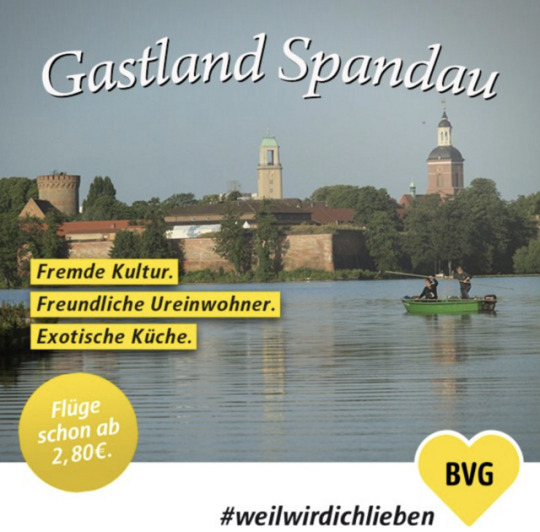



BVG bringt den Brenn zu uns allen.
OK someone asked for translation here we go, the BVG stands for Berlin Transport Company. They regularly throw out zingers on their twitter account.
1 pic:
Kiff Kev: BVG YOU MOTHERFUCKERS WHY ARE YOU NEVER ON TIME?
Bvg: NO IDEA MOTHERFUCKER MAYBE WE ARE DISSIN’ YOU?
2. Host country Spandau
Foreign culture
Friendly Natives
Exotic food
Flights for 2,80€
(This is an old joke that goes all the way back to the 1920s, maybe even earlier. Spandau became a district of Berlin very late, in the 1920s. It’s basically its own city slapped on to the West. Berliners think Spandauers are strange creatures. Spandauer think Spandau is VERY IMPORTANT.)
3. Spring is coming. Wedding isn’t.
(Wedding is a locality in the borough of Mitte, it was cut off from Mitte during the cold war and fused with it again later. Wedding is bordering the hipster kingdoms Prenzlauerberg, Friedrichshain and Kreuzberg parts of former East Berlin that became the new places to be.
When a district is getting popular we say “Kreuzberg ist im kommen” or simply “Kreuzberg kommt” meaning “Kreuzberg is coming”. Sadly the hype train never reached Wedding even though people have been talking about it for years.)
4. Tomorrow will be the premier of “Smurfs-the lost village”
Great! Finally a movie about Potsdam.
(I don’t think I have to explain this.)
5.
Anon: Hey BVG I am currently riding without a ticket from Görlitz station to Warschauer Straße. Are you angry with me?
BVG: May you be plagued by bad street band at Warschauer Straße while a tourist is barfing on your face and a dealer is scamming you.
Anon: What if I am the dealer? XD joke of course
BVG: Then you would probably have the 1,70 € for a short trip or 1.20€ if you are under 15. It’s hard to tell from your tweets.
1K notes
·
View notes
Text
word of the day #3
▪English - forgiveness ▪Portuguese - perdão ▪Swedish - förlåtelse ▪Welsh - maddeuant ▪Icelandic - fyrirgefning ▪Faroese - fyrigeving ▪Afrikaas - vergifnis ▪Dutch - vergiffenis ▪Bulgarian - прошка {proshka} ▪Frisian - ferjouwing ▪Galician - perdón ▪German - vergebung ▪Hawaiian - kala ▪Irish - maithiúnas ▪Greek - συγχώρεση {synchóresi} ▪Italian - perdono ▪Latvian - piedošana ▪Luxembourgish - verzeiung ▪Maltese - maħfra ▪Romanian - iertare ▪Russian - прощение {proshcheniye} ▪Spanish - perdón ▪Swahili - msamaha ▪Xhosa - uxolelo ▪Yoruba - idariji ▪Zulu - ukuthethelelwa, intethelelo, isiyekelo ▪Catalan - perdó ▪Polish - przebaczenie
406 notes
·
View notes
Photo

A/uma Fada do Dente: The Tooth-Fairy O/um Conto de Fadas: Fairytale A/uma Cerimônia: Ceremony Malévola: Maleficent O/um Castelo: A/uma Princesa: Princess A/uma Maldição : Curse A/uma Fada: Fairy O/um Príncipe : Prince O/um Reino: Kingdom A/uma Magia: Magic A/uma Rosa Vermelha: Red Rose A/uma Bruxa: Witch O/um Dragão: Dragon A/uma Fantasia :Costume, Fantasy O/um Elfo: Elf Era uma vez…: Once upon a time… …E viveram felizes para sempre:… and they lived happily ever after Chapeuzinho Vermelho: Little Red Riding Hood Os Três Porquinhos: The Three Little Pigs Os feijões mágicos: Magic beans O/um Gigante :Giant A/uma Mitologia :Mythology A/uma Harpa:Harp Branca de Neve e os Sete Anões: Snow White and the Seven Dwarfs A/uma Rainha: Queen O/um Espelho Mágico: Magic Mirror O/um Herói: Hero A/uma Heroína: Heroine A/uma Floresta: Forest O/um Ritual: Ritual A/uma Lâmpada Mágica: Magic Lamp O/um Gênio: Genie O/um Rei: King O/um Feiticeiro: Sorcerer O/um Bruxo: Wizard O/um Duende Travesso: Troll O/um Veneno: Poison A/uma Fera: Beast O/um fantasma: Ghost

280 notes
·
View notes
Text
Verb to exist, to not exist
있다 - 있어요: To exist, to have 없다 - 없어요: To not exist, to not have
Example: 책이 있어요. There is a book. 책이 없어요. There isn’t a book.
This type of sentence can have two subjects: One naming the possessor of the object. The other naming the object possessed. Example: 내가 연필 이있어요. I have a pencil. However, it is more usual for the possessor to be expressed as a topic and the nouns possessed as a subject. Example: 우리는 개가 없아요. We don’t have a dog.
Info from Elementary Korean Second Edition
107 notes
·
View notes
Text
Antonyms in Russian 💫
· бе́дный - бога́тый (poor - rich)
· безопа́сный - опа́сный (safe - dangerous)
· большо́й - ма́ленький (big - small)
· всегда́ - никогда́ (always - never)
· гря́зный - чи́стый (dirty - clean)
· дли́нный - коро́ткий (long - short)
· дорого́й - дешёвый (expensive - cheap)
· друго́й - похо́жий (different - similar)
· живо́й - мёртвый (alive - dead)
· интере́сный - ску́чный (interesting - boring)
· краси́вый - уро́дливый (beautiful - ugly)
· лёгкий - сло́жный (easy - difficult)
· ме́дленно - бы́стро (slow - fast)
· ме́ньше - бо́льше (less - more)
· молодо́й - ста́рый (young - old)
· мя́гкий - твёрдый/жёсткий (soft - hard)
· но́вый - ста́рый (new - old)
· норма́льный - стра́нный (normal - weird)
· пра́вый - ле́вый (right - left)
· пусто́й - по́лный (empty - full)
· ра́но - по́здно (early - late)
· свобо́дный - за́нятый (free - busy)
· споко́йный - не́рвный (calm - nervous)
· тёмный - све́тлый (dark - light)
· тёплый - холо́дный (warm - cold)
· тяжёлый - лёгкий (heavy - light)
· у́мный - глу́пый (clever - stupid)
· хоро́ший - плохо́й (good - bad)
· ча́сто - ре́дко (often - seldom)
enjoy! (:
2K notes
·
View notes
Text
10 Russian sayings borrowed from Krylov’s fables

Please note: I tried to find the closest Russian/English equivalents possible, but of course there are subtle nuances between the phrases. So if you feel like you have something to add to my translations/interpretations, or if you know/want to discuss better phrases/equivalents, please feel free to comment. If anything, we will be happy to see genuine and active participation!
1. А Васька слушает да ест.
Taken from: ’The Cat and The Cook (Кот и Повар) Literal meaning: ‘And Vasya listens and continues eating’ Meaning: When someone ignores criticism, listens to advice but continues doing one’s own thing English equivalent: to turn a deaf ear, like talking to a brick wall
2. А ларчик просто открывался.
Taken from: A Little Box (Ларчик) Literal meaning: ‘…and the box could be opened easily”. Meaning: some seemingly difficult problem turned out to have a simple solution English, I would say: there was nothing to it (after all), it wasn’t that hard.
3. Да только воз и ныне там.
Taken from: Swan, Pike and Crab (Лебедь, Щука и Рак) Literal meaning: ‘the load is (still) there until the very day’ Meaning: refers to long and useless discussions that lead nowhere English: everybody’s pulling and nothing’s moving, things aren’t moving, not much progress
4. Кто в лес, кто по дрова.
Taken from: Musicians (Музыканты) Literal meaning: some went to the forest, some went for firewood Meaning: cat’s concert; action with no coordination among the participants English: all at sixes and sevens
5. Как белка в колесе.
Taken from: The Squirrel and the Trush Literal translation: ‘like a squirrel in the wheel’ Meaning: to be very busy English: busy as a bee
6. Рыльце в пуху/ пушку
Taken from: The Fox and the Marmot (Лисица и Сурок) Literal translation: to have feathers in one’s snout Meaning: to be involved in something (usually a dishonest, indecent matter) In English, I’d say: a hypocrite
7. Слона-то я и не приметил.
Taken from: Любопытный Literal translation: I didn’t see the elephant Meaning: to overlook something obvious Similar English phrases: can’t see forest for the trees
8. У сильного всегда бессильный виноват.
Taken from: The Wolf and the Lamb (Волк и Ягненок) Literal translation: ‘always are the weak at fault before the strong’ Meaning: the stronger often blames the weaker (often referring to abuse of power/unjustified accusations by those in higher positions)
9. Хоть видит око, да зуб неймет.
Taken from: the Fox and the Grapes (Лисица и Виноград) Literal translation: even though the eye can see, the tooth can’t taste Meaning: Desire of something impossible to obtain Similar phrases in English: so near/close and yet so far
10. Что сходит с рук ворам, за то воришек бьют.
Taken from: Вороненок Literal translation: things that great thieves can get away with are often the same things little thieves are punished for (please note the phrase: это сойдет тебе с рук: you will get away with something; also note the changed word order) Meaning: truly expert criminals are never caught Similar phrases in English: little thieves are hanged, but great ones escape
1K notes
·
View notes
